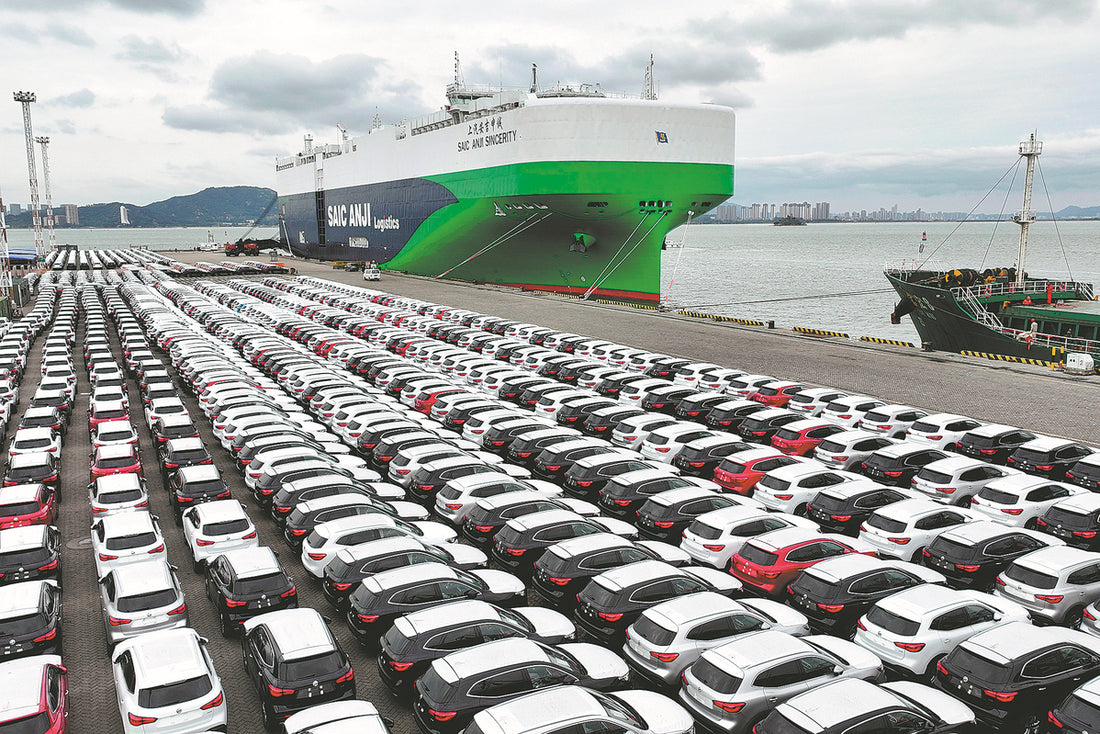The European Union will launch a vote in the near future to decide whether to impose additional tariffs on electric vehicles imported from China, with the maximum tariff rate being 35.3%. In order to prevent the further escalation of Sino-EU trade frictions and damage the mutually beneficial economic and trade cooperation between China and the EU, the plan to prevent the taxation has entered the "final effort stage".
The 27 EU member states had previously planned to vote on September 25 local time. The taxation plan was proposed by the European Commission, which believes that Chinese electric vehicle manufacturers enjoy "high government subsidies" and therefore have "unacceptable competitive advantages".
For the plan to impose additional tariffs on Chinese electric vehicles on top of the 10% standard tax rate imposed by the EU on imported cars, unless 15 member states vote against it, the plan will be officially implemented from the end of October.
According to media reports, in the "consultative vote" on the tariff increase in July, 12 EU member states voted in favor, 4 member states opposed, and 11 abstained.
Some EU countries have expressed opposition to the tariff increase plan and called for a solution through dialogue and consultation. "We don't want to fight a trade war anymore," Spanish Prime Minister Pedro Sánchez said during a recent visit to China. He added that Spain advocates a negotiated solution to avoid possible damage to economic and trade relations.
Given that Spain was the main European country to advocate tariffs on Chinese electric vehicles during the July vote, its recent change of attitude also reflects the country's rational and objective thinking on the matter. This change is particularly welcome because it reflects the wisdom of seeking a political solution to the dispute.
German Chancellor Scholz also expressed support for Spanish Prime Minister Pedro Sánchez's statement, saying "this is our common direction forward." German Vice Chancellor Habeck also stressed that China and Europe should make every effort to avoid trade conflicts when he met with Chinese Commerce Minister Wang Wentao during his visit to China on Tuesday.
"We want to avoid a trade conflict that leads to rising tariffs, because this will ultimately harm both sides," Habeck said.
The EU has pledged to gradually ban the sale of traditional fuel vehicles from 2035. With cutting-edge technology and products, Chinese electric vehicles play a key role in promoting Europe's green transportation revolution. Considering the slow progress of the EU's domestic automobile industry in the transformation of internal combustion engine technology, the EU should strengthen cooperation with China to help itself achieve its green transformation goals, rather than impose tariffs on Chinese electric vehicles.
In the era of economic globalization, restrictive trade measures will inevitably hurt all trading partners. Moreover, a recent report released by the World Trade Organization shows that protectionist policies usually cause domestic prices to rise, which in turn suppresses consumption, and policies may fail as a result.
China has been calling for a solution with the EU on this matter that complies with WTO rules to avoid escalation of Sino-EU economic and trade frictions. In response to the EU's concerns about Chinese electric vehicles, Chinese electric vehicle manufacturers recently submitted a price commitment solution to the anti-subsidy case of electric vehicles to the EU, but the solution submitted by the Chinese industry was rejected by the European Commission.
Olof Gill, a trade spokesman for the European Commission, said that the European Commission rejected the "price commitments" of several Chinese automakers. "Our review focuses on whether these proposals will eliminate the damage caused by subsidies and can be effectively monitored and implemented. The Commission concluded that no offer met these requirements," he said.
If the EU really imposes high tariffs on Chinese electric vehicles, it will not only undermine the stability of the global automotive supply chain and undermine global efforts to combat climate change, but will also force China to take countermeasures.
A spokesman for the European Commission said that the EU remains "open to a negotiated solution," and China is determined to persist in consultations with the EU "until the last minute." It is hoped that the two sides will eventually reach a solution, because a trade war is not in the interests of either party.

